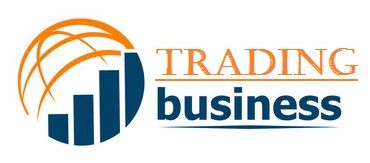Small and Medium Enterprises (SMEs) are the backbone of Singapore’s economy, accounting for almost two-thirds of the country’s workforce and contributing to nearly half of the GDP.
Despite their significant contribution to the economy, SMEs often struggle to secure financing to grow their businesses. This is where SME loans come in.
SME loans are a type of business loan designed to help small and medium-sized enterprises access the funding they need to grow and expand their operations.
In Singapore, there are several types of SME loans available, each with its own qualification requirements.
In this article, we will take a closer look at the qualifications needed for SME loan in Singapore.
1. Business Age
One of the first qualifications for SME loans in Singapore is the age of your business. Most lenders require that your business has been operating for at least two years to be eligible for a loan.
This is because lenders want to see a track record of success and stability in your business before they are willing to lend you money.
If your business is less than two years old, you may still be able to secure financing, but you will likely need to explore other options, such as crowdfunding or venture capital.
2. Revenue
The amount of revenue your business generates is another key factor in determining your eligibility for an SME loan.
Lenders want to see that your business is generating enough revenue to be able to repay the loan.
Most lenders require minimum annual revenue of S$200,000 to S$500,000 to qualify for an SME business loan singapore.
However, some lenders may require a higher revenue threshold, depending on the size of the loan you are applying for.
3. Credit Score
Your credit score is another important factor in determining your eligibility for an SME loan Singapore. Lenders use your credit score to assess your creditworthiness and your ability to repay the loan.
A good credit score is typically considered to be around 700 or higher. If your credit score is lower than this, you may still be able to secure financing, but you may be charged higher interest rates or require a co-signer.
4. Collateral
Collateral is something that you pledge as security for the loan. If you are unable to repay the loan, the lender can seize your collateral to recover their losses. Collateral can include property, equipment, or inventory.
Some SME loans require collateral, while others do not. If you do not have collateral to pledge, you may still be able to secure financing through an unsecured loan, but you may be charged higher interest rates.
5. Business Plan
Your business plan is a critical component of your loan application. Lenders want to see that you have a clear plan for how you will use the loan proceeds to grow your business and generate revenue.
Your business plan should include a detailed description of your business, your target market, your products or services, your marketing strategy, and your financial projections.
Your financial projections should include cash flow statements, balance sheets, and income statements.
6. Industry
The industry you operate in can also affect your eligibility for an SME loan. Some industries are considered to be more high-risk than others, and lenders may be more cautious about lending to businesses in these industries.
Examples of high-risk industries include hospitality, retail, and construction. If you operate in one of these industries, you may still be able to secure financing, but you may need to provide additional documentation and meet more stringent qualification requirements.
7. Legal Compliance
Lenders want to see that your business is operating in compliance with all relevant laws and regulations.
This includes having all necessary licenses and permits, paying taxes on time, and complying with labor laws.
If your business has any outstanding legal issues or compliance concerns, you may have difficulty securing financing. It is important to address any legal or compliance issuesbefore applying for an SME loan to increase your chances of approval.
8. Debt-to-Income Ratio
Your debt-to-income ratio is another factor that lenders consider when assessing your eligibility for an SME loan. This ratio measures the amount of debt you have compared to your income.
A high debt-to-income ratio indicates that you may have difficulty repaying the loan, which can make lenders hesitant to approve your application. As a general rule, your debt-to-income ratio should be no more than 36%.
9. Management Experience
Your management experience is another factor that lenders consider when assessing your eligibility for an SME loan. Lenders want to see that you have the skills and experience necessary to successfully manage your business and repay the loan.
If you have little or no management experience, you may have difficulty securing financing. However, you may be able to overcome this hurdle by bringing on a co-signer or partnering with someone who has more experience.
10. Purpose of Loan
The purpose of the loan can also affect your eligibility for an SME loan. Some lenders specialize in providing loans for specific purposes, such as equipment purchases or working capital.
If you need a loan for a specific purpose, such as to purchase inventory or expand your operations, you may need to find a lender that specializes in that type of financing.
11. Cash Flow
Lenders want to see that your business has positive cash flow and that you have the ability to repay the loan.
This means that you should be generating more cash than you are spending, and that you have a plan in place to manage your cash flow effectively.
If your business has negative cash flow or struggles with cash flow management, you may have difficulty securing financing. It is important to have a plan in place to address any cash flow issues before applying for an SME loan.
12. Industry Experience
Some lenders may require that you have experience in the industry you operate in before approving your loan application.
This is especially true for industries that are highly specialized or require specific technical knowledge.
If you are new to an industry or do not have the necessary experience, you may need to partner with someone who does or explore other financing options.
13. Guarantor
If you are unable to meet all of the qualification requirements for an SME loan, you may be able to secure financing with the help of a guarantor. A guarantor is someone who agrees to repay the loan if you are unable to.
Having a guarantor can help to mitigate the risk for the lender, but it is important to choose a guarantor who has good credit and is willing to take on the responsibility of repaying the loan if necessary.
14. Personal Financial Standing
In addition to your business’s financial standing, lenders may also consider your personal financial standing when assessing your eligibility for an SME loan. This includes your personal credit score, income, and debt-to-income ratio.
If you have poor personal credit or a high debt-to-income ratio, you may have difficulty securing financing.
It is important to manage your personal finances effectively and maintain a good credit score to increase your chances of approval.
15. Use of Funds
Lenders may also want to know how you plan to use the loan funds before approving your application.
They want to see that the funds will be used for business-related purposes and that the investment will help to grow your business.
It is important to have a clear plan for how you will use the funds and to be able to demonstrate how this investment will benefit your business in the long run.
16. Accounts Receivable
Some lenders may also require that you have accounts receivable as collateral for the loan. Accounts receivable are invoices that you have sent to customers but have not yet been paid.
If you have accounts receivable, you may be able to use them as collateral to secure an SME loan.
However, it is important to have a solid plan in place for managing your accounts receivable and collecting payments from customers.
17. Number of Employees
The number of employees you have can also affect your eligibility for an SME loan. Some lenders may require that you have a minimum number of employees to qualify for financing.
If you have a small team or are a sole proprietor, you may need to explore other financing options or provide additional documentation to demonstrate your ability to repay the loan.
18. Purpose of the Business
The purpose of your business can also affect your eligibility for an SME loan. Some lenders may prefer to lend to businesses that have a social or environmental impact or that are aligned with certain values.
If your business has a specific purpose or mission, it is important to communicate this clearly to the lender and to demonstrate how the loan will help you achieve your goals.
19. Existing Debt
Finally, lenders may also consider your existing debt when assessing your eligibility for an SME loan.
If you have existing debt, it may affect your ability to repay the loan and increase the risk for the lender.
It is important to have a clear plan for managing your existing debt and to demonstrate that you have the ability to repay both your existing debt and the new loan.
Conclusion
There are several qualifications you need to meet to secure an SME loan in Singapore. These include having a stable business with a track record of success, generating sufficient revenue, having a good credit score, providing collateral, having a solid business plan, operating in compliance with all relevant laws and regulations, and having management experience.
By meeting these qualifications, you can increase your chances of securing the financing you need to grow your business and achieve your goals.

